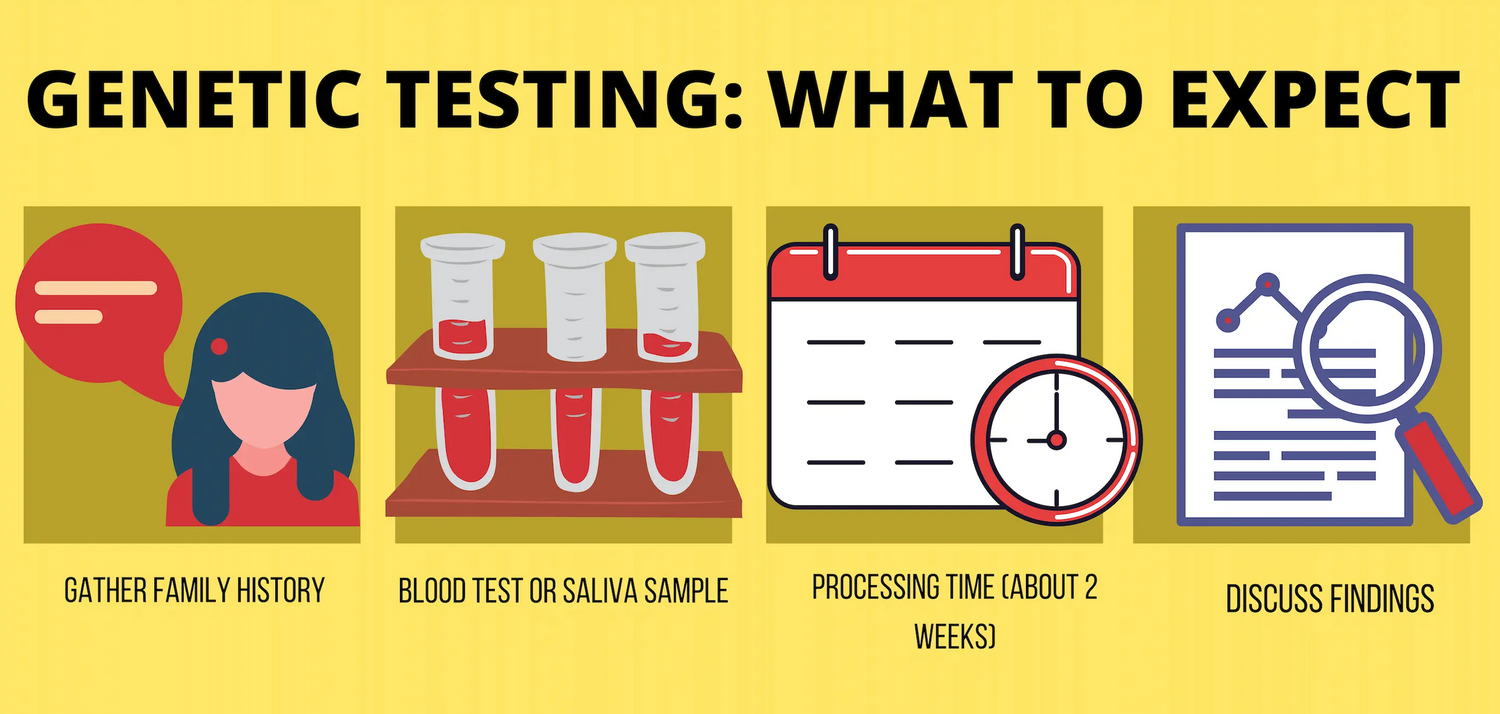With a growing market of at-home genetic health testing kits, many of us are wondering what’s the point? Why should I shell out $125 to be told random information? What will this do for me?
While we can’t speak to all at-home genetic testing yet, we can speak on the importance of genetic testing for hereditary cancer, and more specifically hereditary breast cancer. This goes for men too! Variations in the BRCA1 and BRCA2 gene can affect both women and men.
The Genetics of Breast Cancer
Approximately 1-in-8 patients with breast cancer have a genetic variant that increases the risk of developing the disease. An additional 20% of breast cancer patients have a close family member who also had breast cancer, suggesting there may be a familial link even though no specific genetic variant was identified in their test results.
BRCA1 and BRCA2 are the most common genes known to increase the risk of breast and ovarian cancers. Variations in these genes can also increase the risk for other cancers, including fallopian tube cancer, primary peritoneal cancer, pancreatic cancer, melanoma, male breast cancer, and prostate cancer. Testing for these cancers can help provide some peace of mind, and can allow you to create a screening plan with your doctor so that should you develop cancer, it can be treated at a much earlier and more treatable stage.
Lifetime Cancer Risks

There are many other genes that can increase an individual’s risk of developing breast cancer, including CDH1, PALB2, PTEN, STK11, and TP53. Test kits like Invitae’s screen for variations in all of these genes, offering a more complete view into your potential risks. Like BRCA1 and BRCA2, many of these genes also influence your risk of other types of cancers.
Who Should Consider Genetic Testing?
Those with:
- Breast and/or Ovarian cancer in close relatives on the same side of your family.
- Breast cancer in two or more close relatives on the same side of your family.
- A close blood relative with cancer in both breasts.
- Ashkenazi Jewish heritage with a family history of breast cancer.
- A clustering of cancers that may suggest an inherited cancer syndrome, such as breast cancer, thyroid cancer, pancreatic cancer, prostate cancer, bone or soft tissue cancer, sarcoma, adrenocortical carcinoma, or leukemia/lymphoma – all on the same side of your family
- Breast cancer diagnosed before age 50.
- Ovarian cancer at any age.
- Male breast cancer at any age.
- Bilateral breast cancer or two separate breast cancer diagnoses.
- Triple-negative (ER/PR/hER2-neu negative) breast cancer.
What are the Benefits of Testing?
If you have an elevated risk of developing cancer based on your genetic test results, you can work with your healthcare provider to create a plan designed to prevent whatever form of cancer you may be at risk for. These plans can help doctors catch cancer at a more treatable stage. If you test negative, hooray! While this doesn’t completely write off your risk of ever developing cancer, it lowers it significantly. Your daily habits and family health history will be the biggest contributor to your overall health at that point.
In addition, genetic testing can help:
- Provide an explanation for your personal or family history of cancer.
- Evaluate your risk of developing future cancers.
- Make informed medical decisions, including treatment, surveillance, and preventative options, like a preventative double mastectomy.
- Qualify you for participation in clinical trials or research studies.
- Identify other at-risk relatives for whom genetic testing is recommended.
What are the potential results?
Positive
If testing identifies a variant known to increase your risk of cancer, consult your doctor to create a screening and management plan. You should also reach out to blood relatives and suggest they get tested, they may have the gene as well.
Negative
If testing identifies no variants known to increase cancer risk, your future risk depends on your personal medical history, and family history of cancer. This does not rule out other genetic conditions; consult with your doctor to discuss surveillance recommendations.
Variant of Uncertain Significance
In some cases, testing can identify a variant, but not know at this time whether the variant increases your risk for cancer. In this case, your cancer surveillance recommendations should be based on your personal family and medical history.
Conclusion
Testing for hereditary breast cancer is a smart move for those with a family history of cancer, or who have tested positive for a form of breast or ovarian cancer themselves. The BRCA1 and BRCA2 genes are passed down, so if you do test positive, make sure you contact blood relatives and urge them to get tested as well. These genetic variations that increase cancer risks are not exclusive to women, hereditary cancers can affect men too – don’t just call the biological women in your family!
Early screening is key to a more treatable cancer diagnosis, so be sure to set up a screening and prevention plan with your doctor if you do receive a positive result. As BRCA1 and BRCA2 aren’t the only genes that can increase risk of hereditary breast cancer and other cancers, make sure you are getting a full screening! These genetic tests only need to be done once, but your screenings should be done at regular intervals that will be suggested by your doctor, usually every 3-6 months.
If you do test positive for a genetic variation that increases your risk for hereditary breast cancer and find yourself facing a preventative double mastectomy surgery, Reboundwear has a great line of fashionable adaptive clothing. Their tops are soft, stretchy, and comfortable! They were specifically designed to accommodate ports, drains, and IVs, allowing you to be examined and treated without undressing.





Leave a comment
All comments are moderated before being published.
This site is protected by hCaptcha and the hCaptcha Privacy Policy and Terms of Service apply.